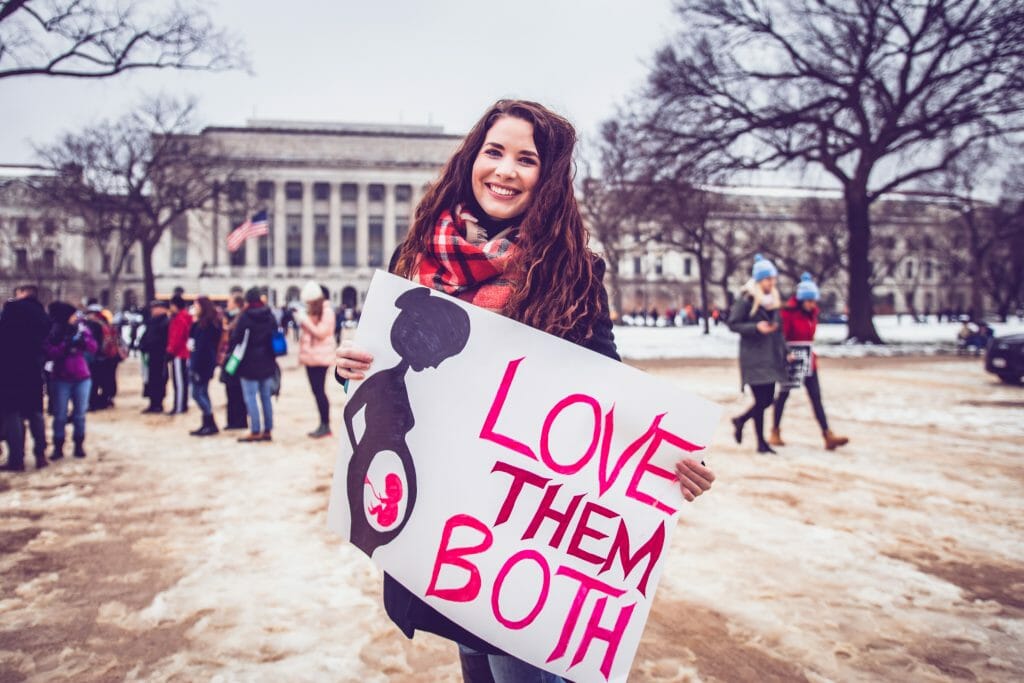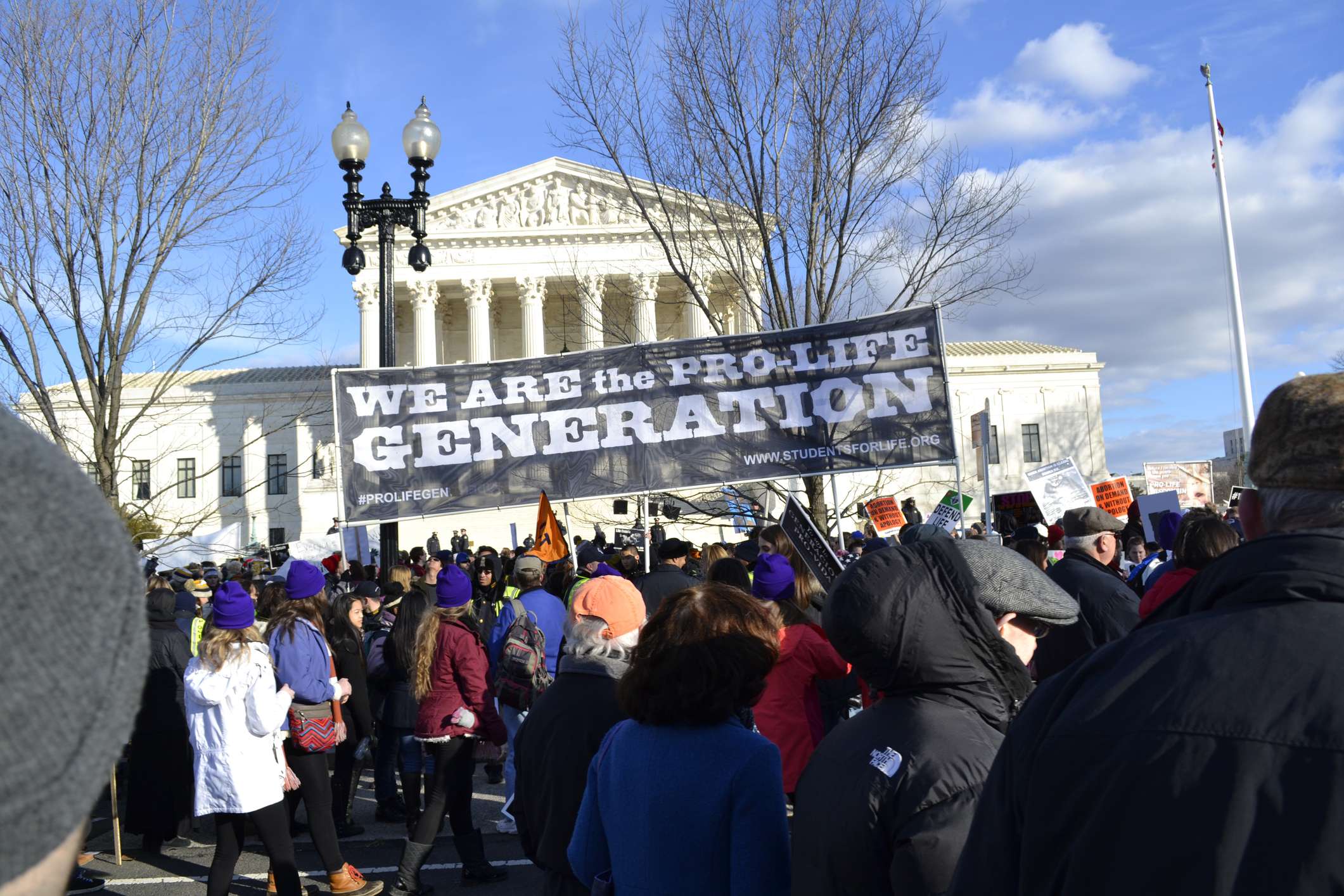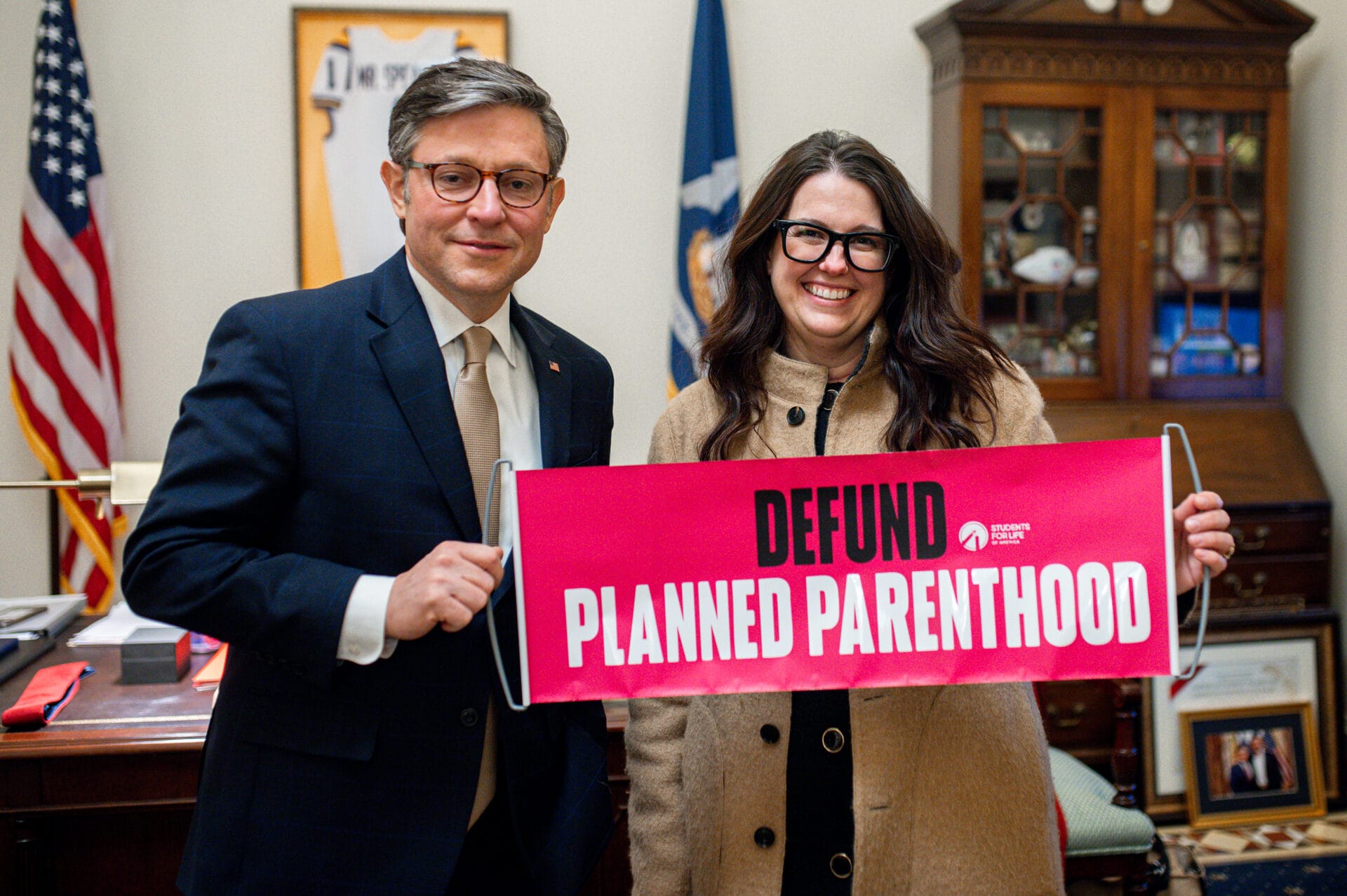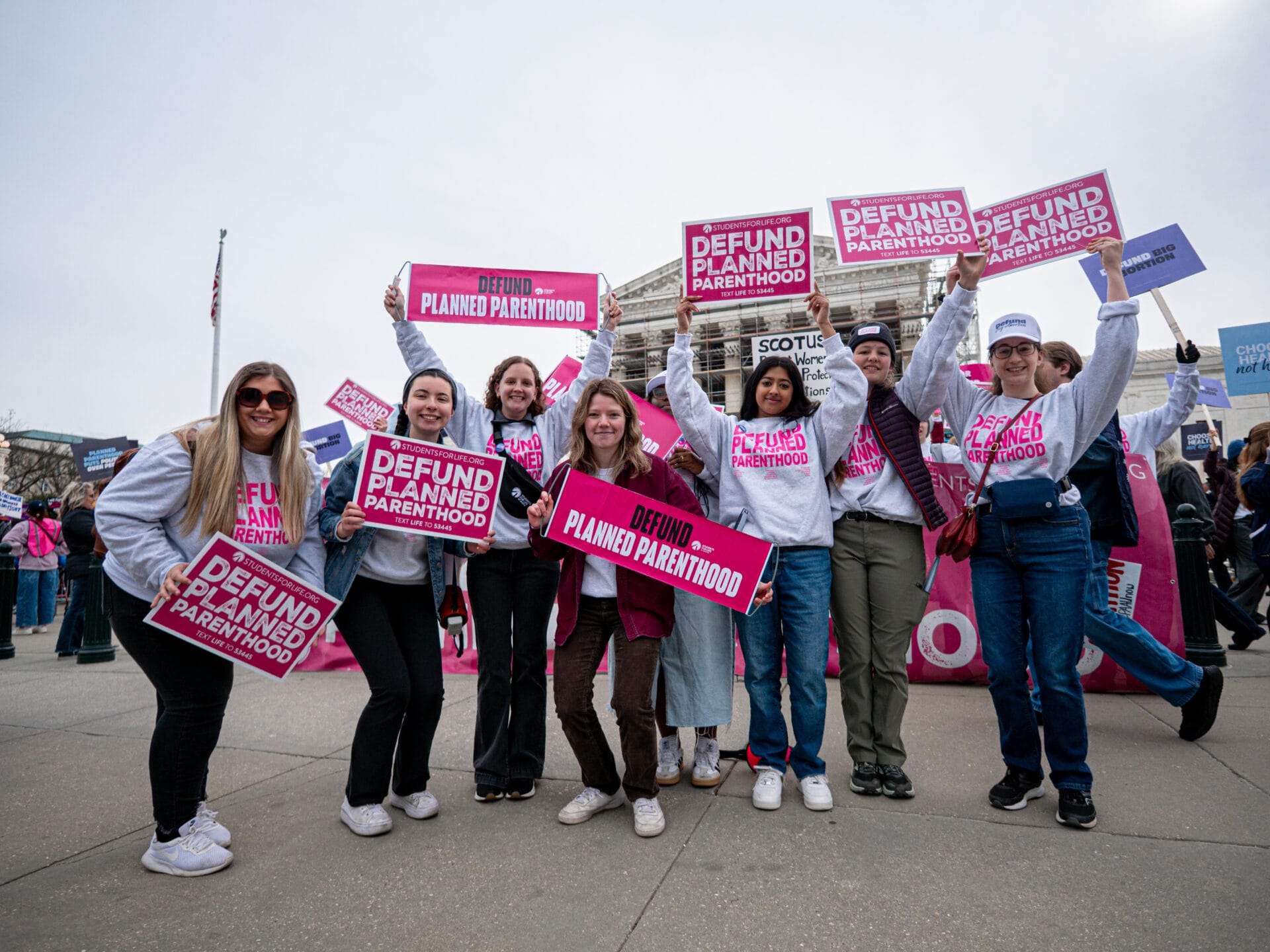

GUEST POST: At a recent tabling event at California State Fullerton College, I expected to have the usual conversations with pro-abortion students (who were usually hostile) and pro-life students (who were appreciative that we were there). What I didn’t expect, however, was to have a conversation with a pro-abortion woman and feel that just talking about my story changed her outlook; that just by being open and vulnerable my own existence would impact her. Here’s what happened:
While camping out in the free speech zone with a table and signs that read “The Future is Anti-Abortion,” a woman — potentially faculty — approached my table, looking a little confused about the signage. Upon coming closer and reading it again, she said, “Oh – you’re against abortion?”

I replied that we were, and she immediately responded, “I actually had an abortion.”
I said, “If you don’t mind me asking, why did you feel you needed to get an abortion?”
She replied, “I wasn’t financially ready to bring a child into the world. I wasn’t ready , and I don’t think women should be expected to bring children into the world if they don’t have financial stability. But I am open minded and I’m curious why you are anti-abortion.”
She had been open and honest with me so I was with her, as well. My reason for being pro-life is pretty personal, but I wanted to share it with her.
“The biggest reason I’m pro-life is because I’m the baby of an unplanned pregnancy,” I said. “My mom faced her unplanned pregnancy with me her senior year of college.”

And that’s when she started crying.
I continued, “My biological father tried to pressure her into having an abortion, but she was a single mom with me for 10 years… She eventually got married.”
The woman said “Wow, and you’re here! Right here!”
I smiled and said, “Yes! I’m so thankful for my life because I have plans and future ambitions.”
Up until this point, she had been wearing a mask, but the woman took it off to wipe away her tears. It had occurred to me in that very moment that she may have just pictured her own preborn child and for an instant imagined the life they could have had together. I apologized for her tears, saying, “I’m sorry. I didn’t mean to make you cry. Do you think if you knew of these pregnancy resources (Standing With You), you would have chosen differently?”
She said, “Well, I don’t regret my abortion. But I also think our culture should fix problems for why women think they need to get abortions.”

I agreed with that last sentiment and added, “A lot of women want to ‘shout their abortion’ but not allow women to grieve their abortions.” I shared available resources for post-abortive women, including a number that she could call anonymously if she wanted to grieve her abortion.
Seeming very genuine, she told me, “I really appreciate you sharing your story. It gave me a different perspective on abortion. I’m glad you’re here and I’m glad you’re tabling.”
This is how we win the pro-life debate: through compassion, understanding, and storytelling. Every single one of us has a story that creates the very foundation of who we are and what we believe in. Women who are post-abortive deserve to grieve their abortion and have resources to cope. If women feel unsupported, they will choose abortion.
Our culture has failed women by perpetuating the lie that that they cannot embrace motherhood and instead must choose between their child and own career. Women deserve so much better than abortion and pondering the “what if” when learning of their unplanned pregnancies. Instead, our society should work to fix the actual issues for why women think they need abortions — whether that be financially, emotionally, or physically — because abortion is ultimately never the solution.
Share this post
Recent Posts

The Pro-Life Generation Rises, and the Numbers Prove It
27 Jun 2025
NEWS: SFLA Honors Pro-Life Leaders Taking On Planned Parenthood
27 Jun 2025
BREAKING: SCOTUS Tells States They Can Tell Planned Parenthood & All Abortion Vendors to ‘Go Fund Themselves’
26 Jun 2025
